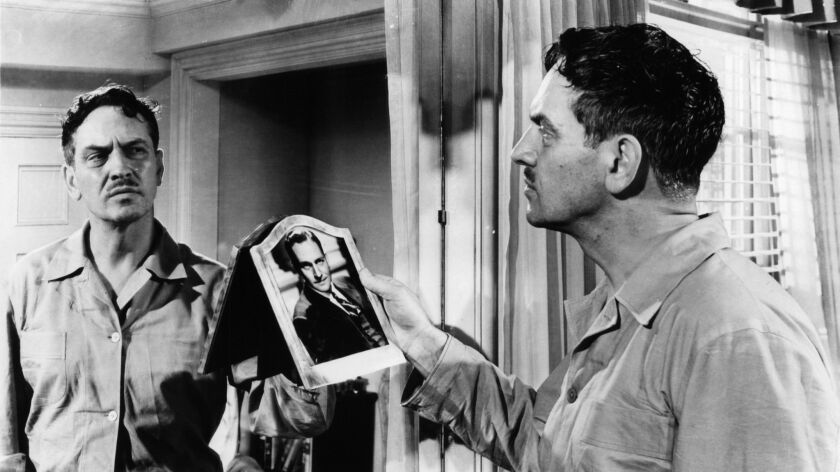Pages
▼
Monday, July 20, 2020
Portrayals of Mental Illness/Trauma in Film: Fredric March as Sgt. Al Stephenson in "The Best Years of Our Lives" (1946)
Fredric March had worked as a draftsman in a bank in his hometown of Racine, Wisconsin when his father couldn't afford to put his multiple sons through college at the same time. But March was willing to wait and got another draftsman job at another bank where he worked for two years, which he described as a "wholly uneventful" period. "Following in my brothers' footsteps, I went to the University of Wisconsin, and following my oldest brother's advice, I took commerce." (Tranberg, Charles. Fredric March - a Consummate Actor, 2013) March had competed in Declamatory in his first year and won in March 8, 1917. The campus newspaper, The Daily Cardinal, described him as having "a rich oratorical voice accompanied by platform poise."
In what little time he had left between waiting tables and selling apples and Hershey bars to his fellow brothers in the Alpha Delta Phi fraternity and receiving good grades in his studies, March had joined the drama club "The Edwin Booth Group." A classmate would later recount March as "never being point[ed] out as having special histironic ability. True, he was good looking and did well, but many of the other members had the same qualifications." He also was active in the UW's Corp of Cadets which he had risen in the ranks to First Sergeant in November of 1917. March ended up applying to be an officer the Field Artillery Central Officers Training School. He ended up spending June to July of 1918 at Ford Sheridan in Illinois.
"Then my oldest brother (Harold) advised me to get into artillery. Respecting his judgment in this as I had the matter of taking commerce in college, I went down to Camp Zachary Taylor (located in Louisville, Kentucky) when he was aide to General Austin. After three months, I got my commission as second lieutenant in the artillery. But instead of going over...seas, I was retained as an instructor of equestrianism. [...] After serving a period there, during which time the Armistice was declared and all hopes of covering myself with military glory went glimmering. I was sent to Fort Sill, Oklahoma, to the School of Fire there. It was the most interesting base I was in, patterned after the Napoleonic School of Fire. I was discharged in February 1919."
He went back to UW where he fell headlong into acting then moved to New York
Sergeant Al Stephenson in "The Time of Our Lives" had been an infantry platoon sergeant in the Pacific before finally coming home from the second world war. He finds himself in an airplane with two other veterans returning to their hometown of Boone City. But Stephenson finds it difficult to readjust although his wife and children do their best to make him comfortable. He finds solace in alcohol instead. It doesn't help that at his old banking job, he gets promoted to being in charge of approving servicemen loans under the GI Bill. But he is consistently hounded by his bosses for taking risks on these men when they don't have collateral for a loan in the first place. His drinking keeps getting worse and explodes when he finds himself giving a drunken speech at a public dinner insisting his fellow employees owe it to themselves to providing loans to servicemen and that it is paramount to investing in the country's future.


No comments:
Post a Comment